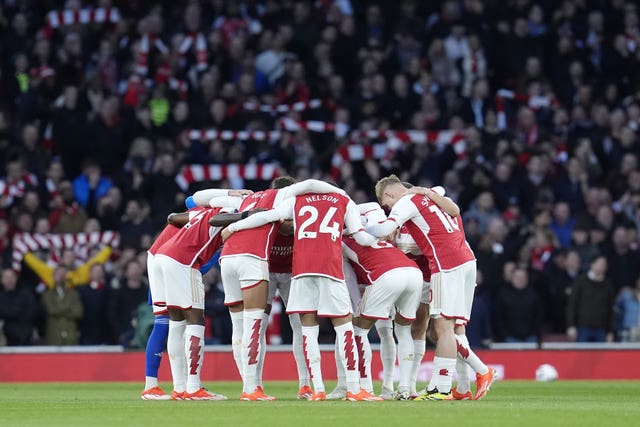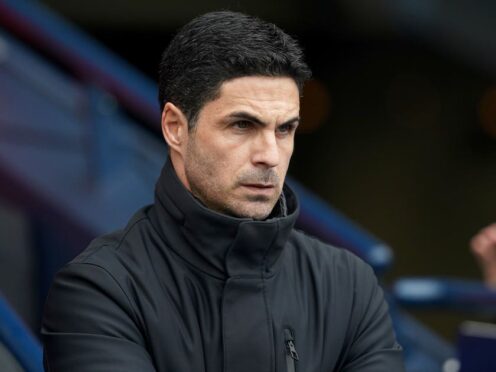Mikel Arteta pointed to Arsenal’s growing maturity as a key factor in driving their Premier League title challenge ahead of Saturday’s meeting with Brighton.
Victory at the Amex Stadium will see the Gunners finish Saturday back on top of the table with leaders Liverpool not in action until Sunday, as they chase a first league crown since 2004.
At 20 years it is the club’s longest streak without winning the top flight since they were first champions in 1930-31.
Mikel has provided a fitness update on Saka 👇
— Arsenal (@Arsenal) April 5, 2024
The last two decades have seen Arsenal consistently written off as being psychologically lacking when it comes to the title-race home straight.
There have been a number of significant collapses in form, particularly during spring. In early 2008 they led the table by six points late in February before finishing third, while the 2009-10 and 2010-11 seasons also saw points thrown away during the run-in.
In 2013-14 they spent more days on top of the league than any other side yet still finished fourth, and last season they were again dominant for much of the campaign before being overtaken in April by Manchester City.
However, with eight games to go in the title race, Arteta is confident something has changed.
“The team has matured,” he said. “They has found their own rhythm, their own leadership and a way of managing certain things.
In the thick of it 🙌
Last night's POTM against Luton Town: Emile Smith Rowe ❤️ pic.twitter.com/mnuipal2aJ
— Arsenal (@Arsenal) April 4, 2024
“They know we are always there to support. We guide them, you always have to be vigilant that what you expect to happen is happening. They are a great group, they are easy.
“It’s about trust. A culture where everybody is very clear what we expect from each other; where everybody does what we expect when I’m there, when I’m not there, when someone is looking or when they’re not looking.
“Trust has to be built every day. You can have an incident or a situation, you can lose it straight away. It takes so much to build it. That’s why you have to be on it every single day. And you need good people.”
Their most recent outing – a 2-0 victory over Luton at the Emirates Stadium on Wednesday – saw visiting manager Rob Edwards describe Arteta’s side as being “the perfect team” with no obvious weakness.
With previous Arsenal teams having been regularly accused of being soft and having insufficient physicality despite their bold attacking play, there is a clear sense of that missing toughness having been found.

“In this league, every game demands different things,” said Arteta, whose team have won nine of their last 10 in the league.
“Certain teams try to get you to play a certain game and, when they do, you have to play it in the best possible way. You have to have the adaptability to do that.
“That’s what we’re trying to do, to evolve as a team, be comfortable and be dominant as well.
“You have to evolve the team, you have to understand what you want. You have to have the players to do it and the knowledge to explain it.”
